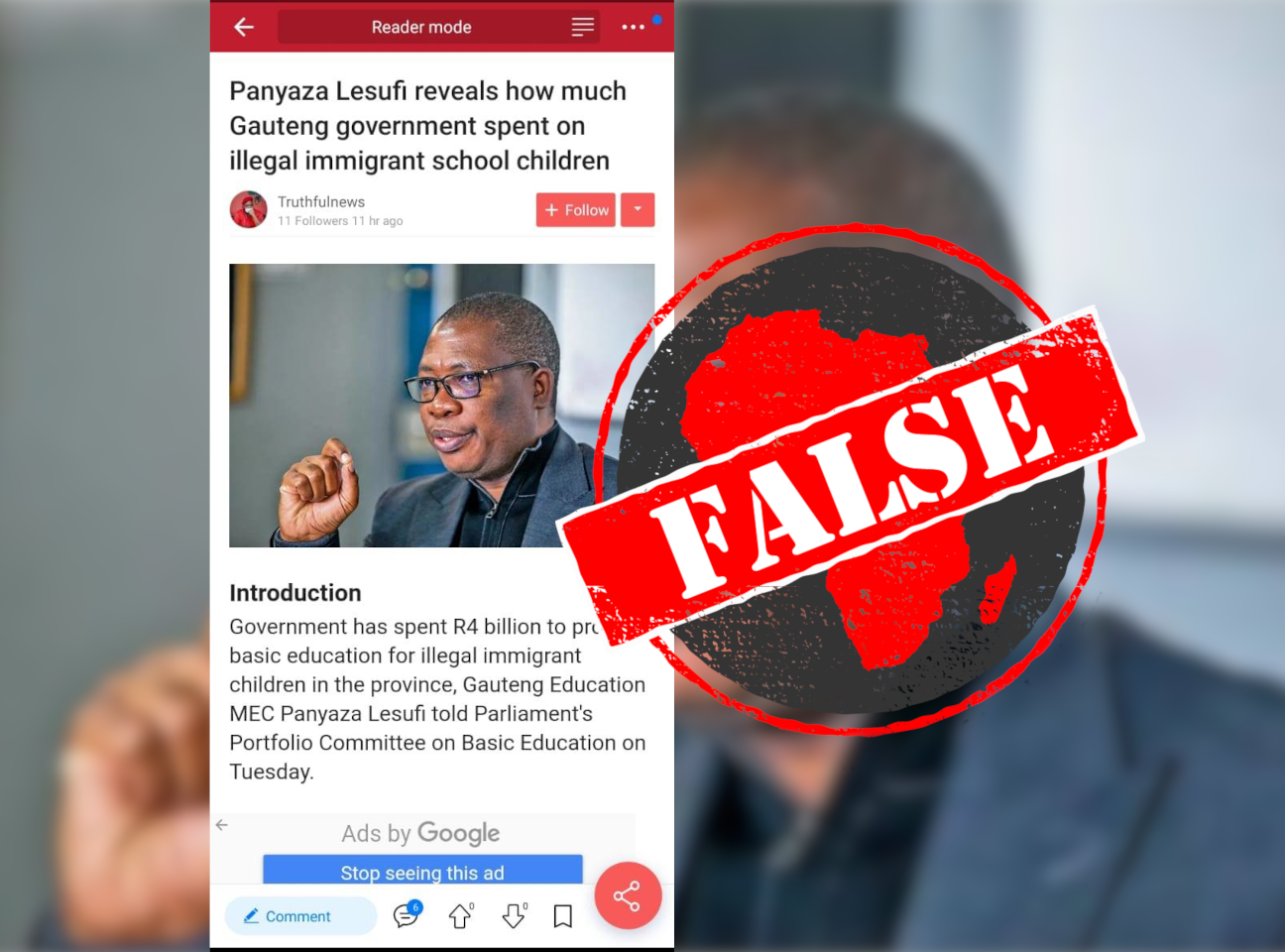IN SHORT: An article circulating online claims Panyaza Lesufi said the Gauteng government had spent R4 billion educating “illegal immigrant children”. But Lesufi quickly took to Twitter to dismiss the news as “fake”.
“Panyaza Lesufi reveals how much Gauteng government spent on illegal immigrant school children,” reads the headline of an article circulating online in September 2022.
It claims the South African government has had to spend R4 billion to provide basic education to “illegal immigrant children” in Gauteng province. This was supposedly revealed by Panyaza Lesufi, Gauteng’s education boss, during a parliamentary committee meeting.
Screenshots of the article have been posted on Facebook and Twitter here, here, and here.
Debate about the impact of foreign migrants on public services has been raging in South Africa. But is this claim about spending on education correct?

‘Kindly ignore, this is FAKE NEWS!’
A revelation like this would have been widely covered by South Africa’s media. Africa Check searched for reputable reports on the R4 billion figure and came up short.
And on 8 September, Lesufi posted a screenshot of the article on his Twitter page, stamped “fake news”.
“Kindly ignore, this is FAKE NEWS!” he said.
“The fake report claims I presented the report at the Parliament Basic Education Portfolio Committee. How can when I am not even a Member of Parliament,” he followed up in another tweet.
Republish our content for free
For publishers: what to do if your post is rated false
A fact-checker has rated your Facebook or Instagram post as “false”, “altered”, “partly false” or “missing context”. This could have serious consequences. What do you do?
Click on our guide for the steps you should follow.
Publishers guideAfrica Check teams up with Facebook
Africa Check is a partner in Meta's third-party fact-checking programme to help stop the spread of false information on social media.
The content we rate as “false” will be downgraded on Facebook and Instagram. This means fewer people will see it.
You can also help identify false information on Facebook. This guide explains how.


Add new comment